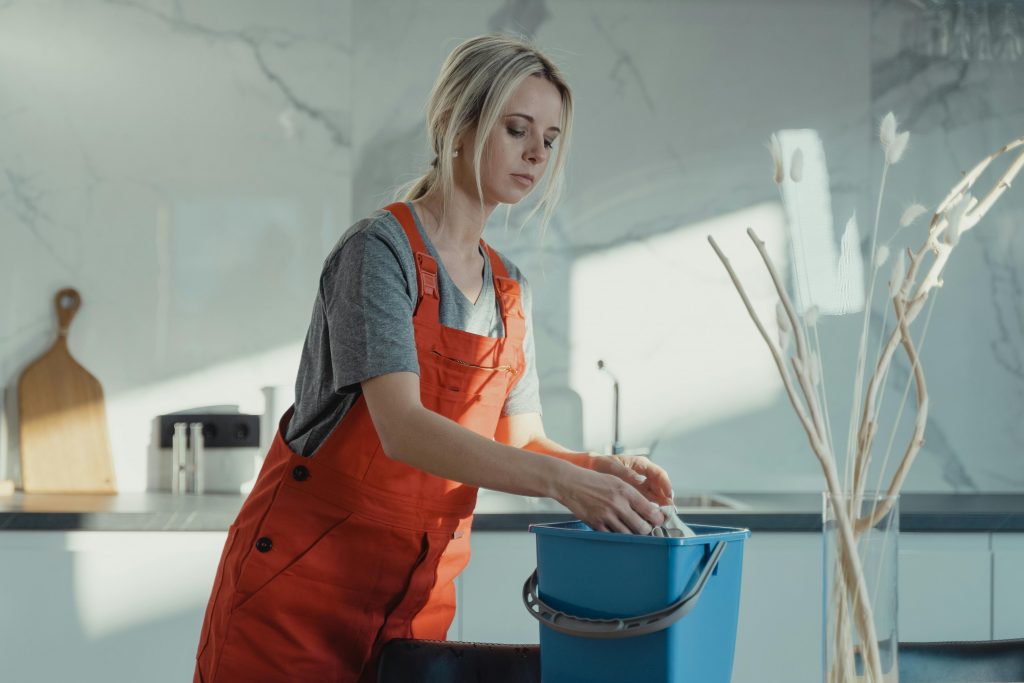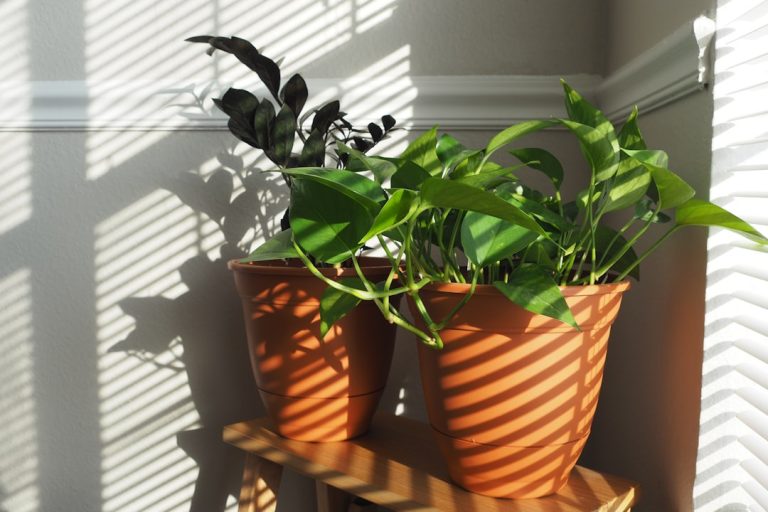Chemical-free cleaning has become increasingly popular in recent years as people become more aware of the harmful effects of chemical-based cleaners on both their health and the environment. Traditional cleaning products often contain harsh chemicals that can cause respiratory problems, skin irritation, and even long-term health issues. Additionally, these chemicals can also pollute the air and water, contributing to environmental degradation. By switching to chemical-free cleaning products and methods, individuals can create a healthier living environment for themselves and their families while also reducing their impact on the planet.
Key Takeaways
- Chemical-based cleaners can have harmful effects on both human health and the environment.
- Eco-friendly and non-toxic cleaning products are a sustainable alternative to chemical-based cleaners.
- Natural ingredients like essential oils, vinegar, and baking soda can be used for effective cleaning.
- DIY cleaning recipes using natural ingredients are safe and effective.
- Choosing sustainable and long-lasting cleaning tools and equipment is important for a greener future.
The Risks of Chemical-Based Cleaners: Harmful Effects on Health and the Environment
Chemical-based cleaners pose several risks to both human health and the environment. Many conventional cleaning products contain volatile organic compounds (VOCs), which can cause respiratory problems such as asthma and allergies. These VOCs can be released into the air during use and linger for hours or even days, leading to poor indoor air quality. In fact, studies have shown that indoor air can be up to five times more polluted than outdoor air, largely due to the use of chemical-based cleaners.
In addition to respiratory problems, chemical-based cleaners can also cause skin irritation and allergic reactions. The harsh chemicals in these products can strip the skin of its natural oils, leading to dryness, redness, and itching. Some individuals may even develop more severe reactions, such as contact dermatitis.
Furthermore, chemical-based cleaners have a significant impact on the environment. When these products are used and disposed of improperly, they can contaminate water sources and harm aquatic life. The chemicals in these cleaners do not break down easily and can persist in the environment for a long time. Additionally, the production and transportation of these products contribute to greenhouse gas emissions and other forms of pollution.
Sustainable Cleaning: Choosing Eco-Friendly and Non-Toxic Products
Sustainable cleaning involves using products and methods that are safe for both human health and the environment. When choosing cleaning products, it is important to look for certifications and labels that indicate they are eco-friendly and non-toxic. Some common certifications to look for include the EPA’s Safer Choice label, which indicates that a product has been evaluated for its environmental and human health impacts, and the Green Seal certification, which ensures that a product meets rigorous environmental standards.
Reading labels is also crucial when selecting cleaning products. Avoid products that contain ingredients such as chlorine bleach, ammonia, and synthetic fragrances, as these can be harmful to both human health and the environment. Instead, opt for products that use natural ingredients and essential oils for their cleaning power.
Natural Cleaning Ingredients: Essential Oils, Vinegar, Baking Soda, and More
| Ingredient | Benefits | Uses |
|---|---|---|
| Essential Oils | Natural fragrance, antimicrobial, antifungal, and antiviral properties | Room freshener, laundry freshener, surface cleaner, insect repellent |
| Vinegar | Acidic properties, removes stains, deodorizes, and disinfects | Glass cleaner, surface cleaner, fabric softener, weed killer |
| Baking Soda | Neutralizes odors, mild abrasive, and whitens | Carpet cleaner, oven cleaner, drain cleaner, toothpaste |
| Citrus | Natural fragrance, degreaser, and disinfectant | Surface cleaner, air freshener, laundry freshener, insect repellent |
Natural cleaning ingredients are safe alternatives to chemical-based cleaners. Essential oils, such as tea tree oil, lavender oil, and lemon oil, have antimicrobial properties and can be used to disinfect surfaces. Vinegar is another versatile ingredient that can be used to clean windows, remove stains, and deodorize. Baking soda is a gentle abrasive that can be used to scrub surfaces and remove odors. Lemon juice is a natural bleach alternative that can be used to brighten whites and remove stains.
These natural ingredients work by breaking down dirt and grime without the need for harsh chemicals. They are effective at removing grease, stains, and odors while being safe for both human health and the environment.
DIY Cleaning Recipes: Safe and Effective Homemade Cleaners
Making your own cleaners using natural ingredients is not only safe and effective but also cost-effective and environmentally friendly. Here are a few easy DIY cleaning recipes using natural ingredients:
1. All-Purpose Cleaner:
– Mix equal parts water and vinegar in a spray bottle.
– Add a few drops of your favorite essential oil for a pleasant scent.
– Use this mixture to clean countertops, sinks, and other surfaces.
2. Glass Cleaner:
– Mix equal parts water and vinegar in a spray bottle.
– Spray onto glass surfaces and wipe clean with a microfiber cloth or newspaper.
3. Oven Cleaner:
– Sprinkle baking soda over the bottom of the oven.
– Spray with water until the baking soda is damp.
– Let sit overnight, then scrub with a sponge or brush and rinse clean.
By making your own cleaners, you can reduce waste by reusing spray bottles and containers. Additionally, you have control over the ingredients used, ensuring that they are safe for your health and the environment.
Cleaning Tools and Equipment: Choosing Sustainable and Long-Lasting Options

Choosing sustainable and long-lasting cleaning tools and equipment is an important aspect of chemical-free cleaning. Opt for reusable cloths and microfiber towels instead of disposable paper towels. These can be washed and reused multiple times, reducing waste. Look for mops with replaceable heads or ones made from sustainable materials such as bamboo. Avoid using single-use cleaning wipes, as these contribute to landfill waste.
When it comes to vacuum cleaners, choose models that have high-efficiency particulate air (HEPA) filters. These filters can trap small particles such as dust mites, pollen, and pet dander, improving indoor air quality. Additionally, consider investing in a steam cleaner, which uses hot water vapor to sanitize surfaces without the need for chemicals.
Proper care and maintenance of cleaning tools and equipment are also important for their longevity. Wash reusable cloths and microfiber towels regularly to remove dirt and bacteria. Clean vacuum filters regularly to ensure optimal performance. By choosing sustainable options and taking care of your cleaning tools, you can reduce waste and save money in the long run.
Green Cleaning Services: Hiring Professionals Who Use Chemical-Free Products
For those who prefer not to clean their own homes or simply do not have the time, hiring a green cleaning service is a great option. Green cleaning services use chemical-free products and methods to clean homes and businesses, ensuring a healthier living environment for their clients. These professionals are trained in using eco-friendly and non-toxic cleaning products and can provide a thorough and effective cleaning service.
When choosing a green cleaning service, it is important to do your research and find a reputable company. Look for certifications or affiliations with organizations such as the Green Clean Institute or the Green Business Bureau. Read reviews and testimonials from previous clients to ensure that the company delivers on its promises of using chemical-free products and providing high-quality service.
Tips for Safe and Effective Chemical-Free Cleaning: Dos and Don’ts
When it comes to chemical-free cleaning, there are some important dos and don’ts to keep in mind:
Dos:
– Wear gloves to protect your skin from natural ingredients that may cause irritation.
– Test natural cleaning solutions on a small, inconspicuous area before using them on larger surfaces.
– Use proper ventilation when cleaning with natural ingredients, as some may have strong odors.
– Follow instructions and recipes carefully to ensure safe and effective cleaning.
Don’ts:
– Do not mix different cleaning products together, as this can create harmful chemical reactions.
– Do not use too much water when cleaning, as excessive moisture can lead to mold growth.
– Do not use natural ingredients on delicate surfaces such as marble or granite without proper research, as they may cause damage.
By following these tips, you can ensure that your chemical-free cleaning efforts are safe and effective.
Benefits of Chemical-Free Cleaning: Healthier Homes and a Greener Planet
Switching to chemical-free cleaning has numerous benefits for both individuals and the planet. By eliminating harsh chemicals from your cleaning routine, you can improve indoor air quality and reduce the risk of respiratory problems, allergies, and skin irritation. Natural cleaning ingredients are also safer for children and pets, who may come into contact with surfaces that have been cleaned.
Chemical-free cleaning also has a positive impact on the environment. By using eco-friendly and non-toxic products, you can reduce water pollution and minimize your carbon footprint. Additionally, making your own cleaners and choosing sustainable cleaning tools can help reduce waste and conserve resources.
Making the Switch to Chemical-Free Cleaning for a Sustainable Future
In conclusion, chemical-free cleaning is an important step towards creating a healthier and greener future. By understanding the risks associated with chemical-based cleaners and choosing sustainable alternatives, individuals can create a safer living environment for themselves and their families while also reducing their impact on the planet.
Whether it’s making your own cleaners using natural ingredients, choosing eco-friendly products, or hiring green cleaning services, there are many ways to incorporate chemical-free cleaning into your routine. By taking small steps towards a chemical-free lifestyle, you can make a big difference in your own health and the health of the planet. So why wait? Start making the switch to chemical-free cleaning today for a sustainable future.
If you’re interested in chemical-free cleaning options, you’ll definitely want to check out this informative article on natural cleaning from Eco Friendly Home and Garden. They provide a variety of helpful guides and resources for maintaining a clean and eco-friendly home. One of their articles even shares a recipe for smooth homemade peanut butter, which is a great example of how you can make your own natural products right at home. So, if you’re looking for effective and environmentally friendly cleaning solutions, be sure to visit Eco Friendly Home and Garden’s natural cleaning section.
FAQs
What is chemical-free cleaning?
Chemical-free cleaning refers to the use of cleaning products that do not contain harmful chemicals such as bleach, ammonia, and other toxic substances. Instead, natural and eco-friendly ingredients are used to clean and disinfect surfaces.
What are the benefits of chemical-free cleaning?
Chemical-free cleaning has several benefits, including reducing exposure to harmful chemicals, improving indoor air quality, and being safer for pets and children. It is also better for the environment as it reduces the amount of toxic chemicals that end up in waterways and landfills.
What are some examples of chemical-free cleaning options?
Some examples of chemical-free cleaning options include vinegar, baking soda, lemon juice, and essential oils. These natural ingredients can be used to clean and disinfect surfaces, remove stains, and freshen the air.
Are chemical-free cleaning products effective?
Yes, chemical-free cleaning products can be just as effective as traditional cleaning products. However, it may require a bit more elbow grease and time to achieve the same level of cleanliness. It is important to follow instructions carefully and use the right amount of product to ensure effectiveness.
Where can I find chemical-free cleaning products?
Chemical-free cleaning products can be found at health food stores, online retailers, and some grocery stores. You can also make your own cleaning products using natural ingredients found in your pantry.


